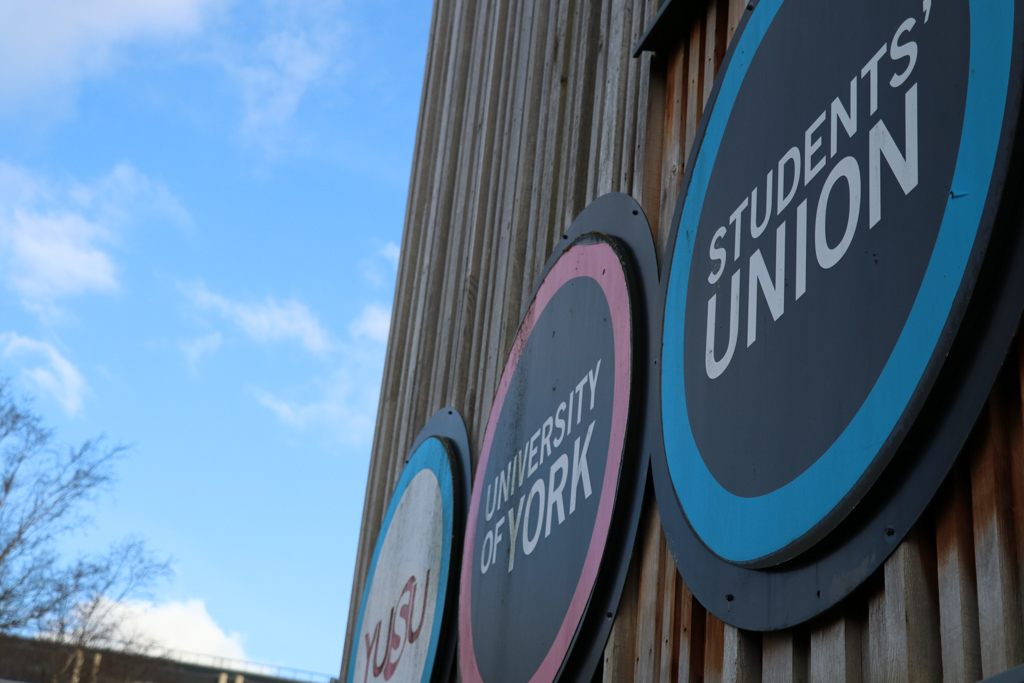So Elections are over. Thank god. Normally, the student population would breathe a sigh of relief as the tattered remains of campaign posters disintegrate in early Spring downpours, but, online, we are simply left with a vague anticlimax, watching unsuccessful candidates’ Instagram pages being quietly deleted.
But what really happened? What did the results mean, and can next year’s candidates learn from the mistakes and victories of this campaign? Was it all, as The Lemon Press suggested, simply a simulation?
Marks Polakovs and Iwan Stone dig down into the dirty depths of YUSU Elections 2021.
Three Incumbents Enter The Battlefield, Only Two Leave Alive
The headline story is obviously the re-election of Patrick O’Donnell as YUSU President – with an impressive 38% lead over his closest competitor, James Harrison. No-one expected Patrick to storm through the threshold in such dramatic style – with Langwith’s 28% college turnout almost 10% higher than any other, you may have been forgiven to see momentum swinging towards the other two candidates, but it appears the action of the last year has instilled enough confidence in our incumbent to hold him high in student opinion.
Matt Johnstone also received a vote of confidence, securing 90% of the votes in his uncontested race for re-election as Academic Officer, although annoyingly for him, an unprecedented 211 students would seemingly rather have had a by-election – the highest this year, 36 above Rowan and Victoria’s 175. Nevertheless, securing almost double the threshold required to be elected with 2,108 votes, the engagement he managed to attain for an uncontested race should be seen as a success story.
No such luck for Carly Precious though, who got eliminated in the second round of a hotly contested Activities Officer race, with Sophie Kelly coming out on top after five rounds of eliminations. Carly ended up with 179 votes in the last round before they were eliminated, compared to their closest rival Hugh Campkin’s 242 and eventual winner Sophie Kelly’s 798 in the same round – the only two to be eliminated before them were RON and Alex Potts, with 42 and 112 votes respectively. Interestingly, after they were eliminated, 46 votes became “exhausted”, meaning Carly was the last (non-eliminated) candidate those voters ranked on their ballot.
Would Precious have done better had they stayed on as Community & Wellbeing Officer? Not necessarily. The C&W race was also tightly contested, with five candidates (plus RON) vying for the role, and Kelly Balmer eventually taking the post. Kelly started off with 769 first-choice votes, and ended up with a grand total of 1,072 after three rounds of eliminations, 431 above her closest rival “Your Babe Rokas” who started off with 488 in the first round.
Last but certainly not least, Maddi Cannell’s impressive two year run as Sport President will come to an end this year, and she will be replaced by Franki Riley for 2021/22. Many of the groups targeted in her campaign failed to reach a voter turnout of above 50% – Women’s Rugby Union (of which Riley was a member) and Jiu Jitsu being the only contact sports to make it into the top ten, despite a focus on increasing safety provisions. However, the vote was conclusive, with Riley receiving almost one thousand votes more than Nick Gardner in the first (and only) round, and the position receiving the third highest number of total votes of all the races this year.
Social Media Numbers, Compared
Since much of the campaigning was done over social media, it’s perhaps worth taking a look at the relative numbers. Sadly, quite a few of the campaign pages have been removed since results night, but the ones that were still up paint an interesting picture.
Kelly Balmer and “Your Babe Rokas” were the last two standing in the Community & Wellbeing race, and both boasted similar figures – Kelly had 424 followers on her campaign Instagram page at the end of the cycle, while “Your Babe” had 454. The difference in follower count is within the margin of error, although interestingly the final voting figures weren’t – Kelly beat “Your Babe” by over 400 votes in the final round. One wonders if the choice of name had anything to do with it.
Turning to the Activities Officer race, Hugh Campkin had 331 followers, Alex Thompson had 250, and Dan Taylor had 186. Sophie Kelly topped them all, however, with 453. What almost certainly helped her reach this impressive total is that she in turn followed an outstanding 1,785 accounts – assuming they’re all students, that’s 9% of the entire student population at York. Sophie’s campaign Facebook page had 153 likes by the end, while those of Hugh and Dan had 124 and 113 respectively, with Alex Thompson falling slightly behind at 109. Meanwhile, Carly Precious’ campaign Instagram finished the race with two followers – so, had you predicted the results based solely off of social media numbers, you would have hit the jackpot in many cases.
An Online Election Can’t Match A Physical One
Let’s be honest, given the state of the UK in January there was absolutely zero chance that this election cycle would be anything but online. Enough people weren’t in York that doing anything in-person would be grossly unfair, not to mention the obvious risk of spreading infection. On that note, a word of commendation must be said not only to the media groups (especially URY and YSTV) who made an election work online, but also to the candidates who improvised, adapted, and overcame.
Unfortunately for YUSU though, Instagram pages and livestreamed Microsoft Teams calls simply don’t have the same energy as pieces of cardboard on campus and candidates invading lectures. This is clearly visible in the turnout figure – 3,523 voters or 15% of the student body, which is 7.7% lower than last year – an even more concerning statistic when you consider that those 7.7% represent nearly 1,500 fewer students voting. With each individual voter amounting to 75 pence donated to the RAG charities and Student Hardship Fund, they will be receiving a total of £1,029.75 less than last year – although, since YUSU couldn’t reduce the price of pints this year, this may have led to less of a reaction from the more short-term thinking, less empathetic of us.
Low Turnout Is Just A Symptom Of A Bigger Issue
The bigger problem for YUSU is not solely that turnout was this low (although, given the scenes in Manchester recently, that may well cause issues), but what it represents. York has 20,435 students, of which 14,560 are undergraduates – yet only 3,523 were engaged enough with their Union to vote in at least one race.
It’s worth noting that, even though York’s turnout was lower than previous years, it’s still among the highest in the sector. Manchester’s SU elections had a turnout of 13% and Durham had 14.6% of students vote. Bristol, however, managed a turnout of 23.5%.
Nevertheless though, there is a significant chunk of the student body that either doesn’t care or simply doesn’t know about YUSU – and, worryingly enough, the latter is more prevalent than you might think. I was speaking to some first year students last week, who had no idea who YUSU are or what they do other than “the people that send annoying emails every other day”. It’s worth noting that these are just the views of a relatively limited sample, but if even a small number of students perceive YUSU this way, the Union really needs to rethink its marketing and engagement strategy.
One final note from the resident statistics nerd: in every single race, the person who came out on top in the first round ended up winning – meaning that, even if the election had been run using a First Past The Post system, we’d have had the same results. That’s not to say that YUSU should switch away from STV – indeed, it’s the fairest system around – but it goes to show the strength of the campaigns and the unanimity of the voters (given that their second and third choices did not meaningfully sway the result in a single race).
But What Does This All Mean?
Numbers are all well and good, but what will the next year look like for students? It’s obviously difficult to make any kind of long-term statements in this day and age (look at how well that went this time last year), but there are a few things we can say for certain.
For one, YUSU with Patrick and Matt at the helm will certainly be a strong campaigner. Neither of them have been quiet this year, and, armed with a year’s experience, Heslington Hall can only see them as a force to be reckoned with. None of the incoming sabbs are inexperienced either – Sophie Kelly is the outgoing Accountability and Scrutiny Chair (a role that remains unfilled after this election), while Kelly Balmer used to be Policy Coordinator, and co-founded the Last Taboo – an organisation that has arguably been more proactive, and received more engagement or exposure than any equivalent YUSU body. Franki Riley is also likely to provide a stronger link with college sport, while continuing the strong relationship Maddi Cannell established with Uni sport committees. Everyone on the sabb team has considerable experience of how YUSU and the Uni work behind the scenes, and they should be able to put that to good use.
However, this election has highlighted that there are other formidable challenges to overcome. The student body grows less and less engaged with YUSU by the year, which two terms of Zoom uni certainly haven’t helped. The sabbs will need to work hard to rebuild that following, and that’s before you consider the issues brought by the pandemic. Sophie Kelly in particular will face major obstacles, not only with her plan to develop York’s nightlife, which a series of three lockdowns has been particularly harsh on, but also in solving the problems of York’s societies which have had severe membership drops, difficulties filling their committees, and in some cases a complete inability to run events.
At best, the coming year will bring the incredible difficulties of reigniting an empty campus, alongside an academic and activity community that is gasping for air. At worst, the new sabbs are facing down another year of lobbying, and desperately clawing for empathetic treatment of students. This is going to be a year where they are sorely needed, and we can only hope that they are up to the job.

